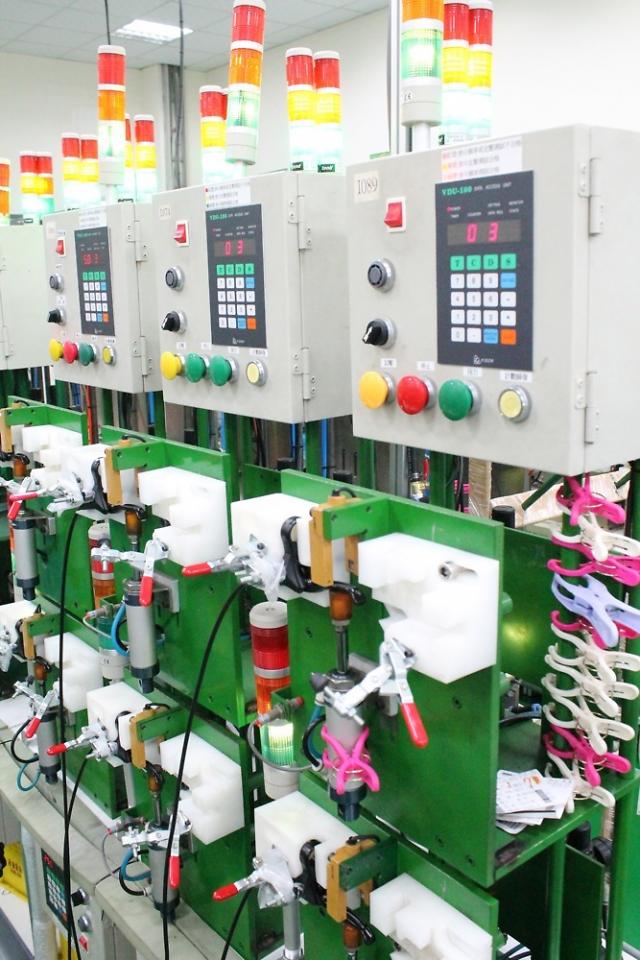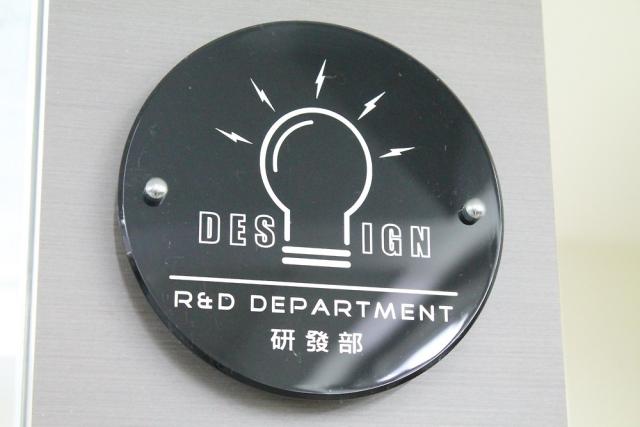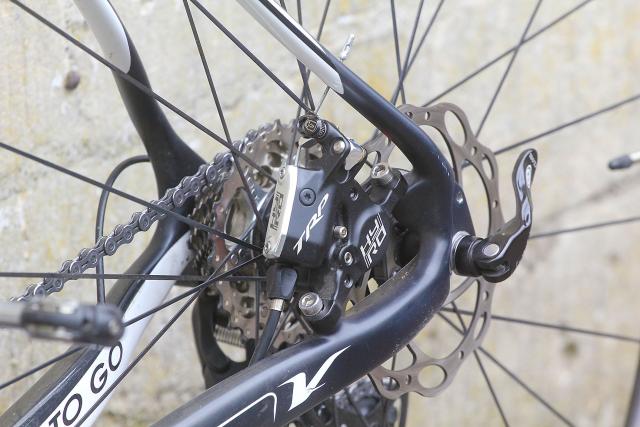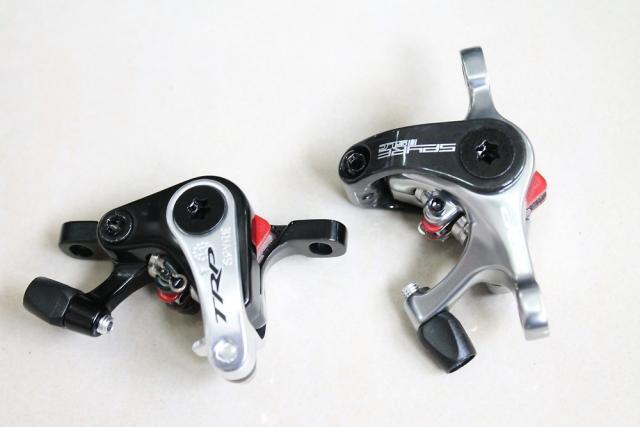- News
- Reviews
- Bikes
- Components
- Bar tape & grips
- Bottom brackets
- Brake & gear cables
- Brake & STI levers
- Brake pads & spares
- Brakes
- Cassettes & freewheels
- Chains
- Chainsets & chainrings
- Derailleurs - front
- Derailleurs - rear
- Forks
- Gear levers & shifters
- Groupsets
- Handlebars & extensions
- Headsets
- Hubs
- Inner tubes
- Pedals
- Quick releases & skewers
- Saddles
- Seatposts
- Stems
- Wheels
- Tyres
- Tubeless valves
- Accessories
- Accessories - misc
- Computer mounts
- Bags
- Bar ends
- Bike bags & cases
- Bottle cages
- Bottles
- Cameras
- Car racks
- Child seats
- Computers
- Glasses
- GPS units
- Helmets
- Lights - front
- Lights - rear
- Lights - sets
- Locks
- Mirrors
- Mudguards
- Racks
- Pumps & CO2 inflators
- Puncture kits
- Reflectives
- Smart watches
- Stands and racks
- Trailers
- Clothing
- Health, fitness and nutrition
- Tools and workshop
- Miscellaneous
- Buyers Guides
- Features
- Forum
- Recommends
- Podcast
feature
'Disc brakes will take over' - the man from TRP tells us why
Tektro have over 160 CNC machines working 24/7. They produce 20,000 road caliper brakes a month – nearly quarter of a million per year. And that’s nothing compared to the number of hydraulic disc brakes they make: 2.2 million per year. In short, they know a thing or two about brakes, so when the Marketing Director of TRP, Tektro’s high-end division, says that disc brakes are going to take over in every sector of cycling in the next few years, you have to take it seriously.

Of course, it’s in TRP’s interest to big up disc brakes – they make them. But they also make lots of caliper brakes so they’ll sell plenty of units whatever happens in the market.
Plus, you don’t have to take TRP’s word for it. SRAM have already announced new road disc brakes and there are strong rumours that other major manufacturers will be launching their own models very soon. A massive shift is certainly taking place.
The Tektro brand has been around for 27 years and employs 1,400 people. I’ve come to visit their manufacturing facility outside of Taichung in Taiwan, where they’ve been for the past four years. Everything is milled in here, they have a forging plant next door, and the carbon fibre parts are created at their older factory five miles up the road.

I won’t go too deeply into the manufacturing process but there’s some seriously powerful machinery here it. This is a 400 tonne press, for example. To put that in perspective, a Volkswagen Golf weighs about 1.5 tonnes. You wouldn’t want to get your fingers caught in there. In goes a solid lump of metal, out comes a section of brake.

The impression you get wandering around here is that Tektro take their testing and quality control very, very seriously indeed. Brakes are tested individually before they go out. The testing is done on machines, 300 cycles per brake, then they’re pressure tested for 400 seconds. If the brake passes, it’s held for 36 hours and then pressure tested again. This isn’t just done on sample brakes but on every single one before it leaves the factory.

As I said, TRP is the high-end division of Tektro, the initials originally standing for Tektro Racing Products – although the name is now just TRP. Essentially, Tektro products tend to be mass market while TRP are more exclusive, high-performance components. We’ve shown you TRP’s new Spyre and HyRd disc brakes recently, along with the Hylex hydraulic road/CX brake.

We spoke to Lance Larrabee, TRP’s Marketing Director, about both the brand and the future of braking. As you can’t fail to have noticed, big things are happening in road bike braking right now and Lance reckons this is just the start…
road.cc: Tell us about TRP's track record in developing brake technology?
Lance Larrabee: In cyclocross and time trialling, we’re the number one. We invented the direct mount brake. Working with Specialized, we mounted brakes directly on pivots rather than with a centre bolt mount, and Shimano have followed us.

We had this idea for a V-brake that goes directly behind the fork. When everybody was worried about the 3:1 rule for the airfoil shapes [the UCI rule stating that the depth of the tube can’t be more than three times greater than the width], we thought we could extend the airfoil shape by making the brake part of that fork blade, so the TRP TTV brake goes directly behind the fork blade and creates the trailing edge of the airfoil shape. Giant are using that on their Propel aero road bike now, Argon 18 have been equally successful with it and so have Colnago, Wilier… more and more people.
Our lightweight magnesium brakes have been used on the highest level Cannondale Ultimates and Specialized Tarmac SLs.
Are disc brakes for road bikes really going to be the next big thing?
We feel like we’re the industry leaders in niche areas and if the biggest revolution coming in cycling is disc brakes for the road, we want to be at the forefront of that.
We know from motorsports that disc brakes are faster and we know that in Formula One, with those carbon fibre rotors, the drivers can leave their braking until later and reduce their lap times. Imagine if Nibali can dive into a corner and brake later on a descent, if he can get away by 30secs. If big brands are behind disc brakes for road, then the UCI can’t deny it.
I think it’s sensible not to just throw the gates open yet [disc brakes are not yet legal in UCI-sanctioned road racing], but every major bike manufacturer has a disc brake road bike coming

What about hydraulic rim brakes? Do you see them making much of an impact on the market?
Well, people who tested the SRAM version at Sea Otter said that it wasn’t great [we did a First Ride last month]. We’re looking at it – we have a design in the works – but at the same time we feel, why go halfway?
What do you think about cable systems versus hydraulic set-ups?
A hydraulic system has more power ultimately, and better modulation whereas a mechanical system is a bit lighter. The current TRP HyRd system [a mechanical interface hydraulic disc brake] is within 5g of the weight of an Avid BB7 [cable operated disc brake].

The Spyre, the two piston mechanical brake is 40g lighter than a BB7, it is 20mm narrower with 20% more power, so it’s for the person who wants light weight.

A standard Shimano Dura-Ace road caliper weighs about 135g and the Spyre is 140g, so you’re only really adding the weight of the rotor. We think that for simplicity and weight that might be really good, but I tend to prefer the power and modulation of hydraulic, and it feels really good in your hand. It feels like a well setup road caliper.
And whereas SRAM systems are super-expensive – they’ll be on $10,000 bikes – the HyRd can be positioned on an Ultegra-level bike at $1,500 and it’ll work with any current shift lever available.
What about rotor size?
Heat is not a big issue for us but we think you need a bigger rotor just for the extra leverage. We recommend a 160mm for the road. I think 140mm is fine for cyclocross.
Whenever we talk about disc brakes for road bikes, people on the road.cc forum always say that the limiting factor at the moment with existing caliper brakes isn’t the braking power, it’s getting the tyre to stop on the ground. What do you say to that?
I’d invite you to use the brake and make your own conclusion. It’s not a question of locking up the wheel all the time; what you want is power and control and that’s what you get here.

Normally, to pull up at a stop sign you’ll use about 3kg of lever force. It takes 6kg of lever force to clamp the brake tight so there’s a lot of room in there to feather the brake. It’s not like it’s on/off. There are armchair engineers who imagine what it’s like but they should use them and see.
Will discs eventually expand into every sector of cycling or are there areas where rim brakes will always remain dominant?
I don’t see why they shouldn’t go everywhere.
My first bike had a 5-speed freewheel and I made it into a 6-speed. People asked me what I wanted that for and thought it was stupid – but now we have 11-speed. I think it’ll be similar with disc brakes. Riding a disc brake bike on a descent gives you more control and is more fun than riding a caliper brake bike.

When it comes to developing disc brakes for the road, is it a question of developing existing mountain bike technology or starting with a clean sheet of paper?
It’s a little of both. We started with a basic mountain bike design but we’ve developed it for the road. The Hy/Rd’s composite pistons, weren’t used in mountain bike brakes, and we’ve had to think about the leverage ratios for road levers and things like that. Plus, a brake for the road has to look like a road product and not like a mountain bike product.
So, where do you see road bike braking heading next?
Well, we’re waiting for all this to shake out now. Then I think thru-axle designs [where the dropout is closed at the bottom as you’ll find on many mountain bikes] will come to the road. The danger with carbon dropouts is that you can remove a little material from the dropout with very heavy braking.

In road racing, you can’t file off the lawyer tabs [the tabs on the end of the fork dropouts that stop the wheel falling out even if you forget to tighten the quick release skewer] anymore, so to do a wheel change you have to unwind the skewer. It’s not that much more difficult to slide a thru-axle in and out to change a wheel.
For more info on TRP visit www.trpbrakes.com. The Tektro website is www.tektro.com. The UK distributor for both is www.upgradebikes.co.uk.
Mat has been in cycling media since 1996, on titles including BikeRadar, Total Bike, Total Mountain Bike, What Mountain Bike and Mountain Biking UK, and he has been editor of 220 Triathlon and Cycling Plus. Mat has been road.cc technical editor for over a decade, testing bikes, fettling the latest kit, and trying out the most up-to-the-minute clothing. He has won his category in Ironman UK 70.3 and finished on the podium in both marathons he has run. Mat is a Cambridge graduate who did a post-grad in magazine journalism, and he is a winner of the Cycling Media Award for Specialist Online Writer. Now over 50, he's riding road and gravel bikes most days for fun and fitness rather than training for competitions.
Latest Comments
- Hirsute 2 sec ago
I did see someone here taking ages to get their wankpanzer through this gap, having to check both sides and even get out !...
- Hirsute 10 min 39 sec ago
Radar lights do more than an ordinary light as they change pattern when a driver approaches. Also they tell you how fast and fat away a driver is,...
- Rendel Harris 1 hour 17 min ago
Genuinely puzzled as to how you've extrapolated that from what I said. Care to explain?
- Pub bike 3 hours 28 min ago
He is up against the global trading system, which has obviously been in the news a lot lately. Framebuilders in other countries can undercut him,...
- David9694 5 hours 1 min ago
Stouport residents bemoan huge traffic queues through town...
- rookybiker 15 hours 55 min ago
The trailer seems to connect to both ends of the rear axle. Can it do tight corners without dragging the tyre sideways?
- Destroyer666 16 hours 51 min ago
Have you owned Bont shoes? In my experience even the widest Lake shoes have had a bizarre form of narrowing way too much in the toe area. But the...
- froze 17 hours 19 min ago
Not sure if this is possible, but this news letter goes out all over the world, and some places like Decathlon does not send stuff to America, in...












































Add new comment
54 comments
If you slam on your brakes in a peloton then you're going to cause a big crash regardless of what brake type you have.
A bit like what DT Swiss have been doing for years?
The real problem here is going to be standardisation.
We are all going to have discs whether we want them or not, as the marketing machine is already behind them - you'll note it was a marketing guy with little or no appreciation of mechanics who gave the spiel (TRP invented direct mount? I don't think so ... think of all those sidepulls we brazed to fork crowns in the 1980s, or the number of cantis / V-Brakes whose bosses are brazed to forks / frames etc., BMX brakes under the BB and so on, and so on ...).
But we are in an industry that has gone from basically three specifications of headset to 47 (go on, count them all) in 10 years, we have BB "standards" which are anything but, and multiplying like rabbits (and none of them work in a really satisfactory fashion) - what hope do we think there is for standardisation of rotor size, rotor mounting, hub width?
For pro racing we are going to go from neutral service having to carry four different rears and one front to (even if they standardise rotor size and wheel fixing) eight rears and two fronts until *everyone* is on discs - and pity the poor retailer - this will represent, at least during that transitional phase, an effective doubling of wheel stock-holding.
There is no avoiding any of this but I sure ain't looking forward to it ...
Nicely written! I liked the line about how you wouldn't want to get your fingers caught in the 400 ton press. Good work!
I've run mechanical discs on two 'road' bikes now. I had a steel framed Pompetamine with BB7s and found the disc brakes were very good in the wet and especially when I was lugging over 20kgs of luggage in my panniers.
I'm currently running BB5s on a cross/commuter bike and (strangely) these seem even better than the BB7s. I've also dug out some very old deep section carbon wheels and had them rebuilt onto decent MTB hubs and the bike just flies! I do think top dual pivot brakes are very good but rim braking on carbon rims has always been a bit pants. It feels terrific to bowl along with fast wheels and be able to stop properly (and quietly) too. It really has put a new lease of life into the wheels.
I don't race anymore but I can see there are still issues into going to discs. Disc systems are still a little too heavy (right now) as picking up my converted wheels will testify. I'm not sure non-radial (on one side) is too much of an issue but as the previous poster says, standardisation definitely will be. But they do make a lot of sense for non-racists (as my wife says!).
Oh, if forks are flexing that is due to poorly designed/manufactured forks - I certainly don't have that issue. I too had to customise my mudguards to fit around my discs.
What hasn't been mentioned is heat (because basically all that brakes do is convert energy into heat). Whilst the heat from braking is
I have heard of riders overheating their wheels on a descent and puncturing (which is why you should never inflate your tyres to the maximum figure written on them). I've never heard of anyone buckle a wheel rim due to heat.
In the case of discs the area to absorb heat is much smaller - there must come a point where the heat from braking buckles the disc. At this point your bicycle is useless. For that reason I think the UCI are as likely to adopt disc brakes as they are to allow recumbents. I have been wrong before though!
granted
maybe, but as a rim still has to be able to hold a tyre at 150psi not sure how much weight in the real world
frame design not calipers in my experience
frame design, how close the crown and seat tube are to the tyre, brakes are largely irrelevant
you obviously haven't seen the grey crap over my mtb from the brake pads
see my earlier comment, there can be severe braking loss in heavy rain. remember the days when cheap bikes came with steel wheels?
design issue
and if you bend a rotor or have one warp? it happens
is it really a problem with well design lights?
try some cheap pads, far to thick and constant rubbing until they are half worn.
seen how many how to bleed brakes threads on the internet?
[/quote]
not anti discs but they aren't really a major advance.
Depending on how well thought out the the dropout area is to fit the stays. You might have to do something like this:
I cant believe we got so many comments in before Bez highlighted the advantage of lighter and stronger rims.
For a sport obsessed with component weight, taking that fat braking surface away from the main rotational weight to sacrifice it for a much smaller hub focused weight would seem to be a huge advantage to me?
But then i've only just got into road and been on the mtb for 10 years where mud and wet make disks the only real choice.
Pros of discs:
- no rim wear
- lighter rims available
- larger tyres are no problem
- mudguards are no problem
- no brake filth covering the whole bike
- no loss of braking in the wet
- less force required at the lever
- no need to loosen off the brake if you break a spoke
Pros of discs over cantis:
- no fouling crown-mounted lights
- no loss of power with pad wear
- easy to set up
Cons of discs:
- need the fork to be meatier and preferably have differently-angled dropouts or another anti-ejection feature (eg right-hand mount or through-axle)
- can't use radial spoking
I'd be fine with caliper brakes if I only ever rode in the dry on good tarmac, but that's not reality, so the case is pretty well stacked on one side IMO
I just don't understand why some people don't get it, disc brakes are far more controllable than rim, they don't suffer performance issues like rim brakes and are easier to modulate, so basically they are better and safer, as brakes are the main mechanical part of the bike that stops us and keeps us safe (as opposed to our observation, anticipation and general awareness of what's coming up and around us) I see this as a no brainer, why would you not want to be safer ?
I've had a varity of hydro discs on my mtbs for years now, presently got Hope M4s on one and Shimano XTs on the other. They're brilliant.
In time past I've worn through the braking surface of wheel rims, and when they split, they go with a bang!
So my latest road bike has disc too. Its technically a 'cross bike, but who's counting? Shimano R505 callipers, with 140mm Ashima airrotors on a wheelset I built myself.
They just work. Dead easy to scrub off speed without locking up, especially handy in the wet.
And for the people who say they don't look as good, my wheels have black hubs, black spokes, black nipple and black rims with no machined surface so they look brilliant.
I'll be riding it at the LEL in a couple of months, feel free to have a look...
I really don't mind if people wnat to stick to rim brakes, I know they are really very good. What I don't like is the naysayers and doom-mongers who seem to be offended that other people may ride bikes a little differently.
I'm a bit surprised people are still so anti from a performance point of view. Work better in the wet, save your rims, very low maintenance, better modulation- what's not to like?
Of course manufacturers want to sell us stuff, but the next great thing coming onto the market doesn't mean you have to bin what youy have now- nobody's making you do anything and there'll be rim brakes and parts available for decades yet I reckon.
I can't see myself replacing my road bike for a good few years yet, but when it's time I expect the new one will have discs- which by then will be a few generations in with price and performance dialled in nicely. All good.
Something that no-one has mentioned so far, what about the risk of the fork flexing during braking. A friend of mine (not an experienced cyclist at the time) bought a Cannondale Bad boy (700c wheels & cable disks) and asked me to look at his bike as it sounded as if his headset was loose, I looked at it and found that the problem was the fork flexing, not a headset issue. I suppose with a rigid fork and the inertia during braking now nearer the hub had caused it, my only experience with disks is with a mountain bike I once owned years ago, but the front suspension absorbed this momentum. Therefore will roadbike forks need to be 'beefed' up to compensate? (around the headtube & fork crown junction).
Am I the only person who objects to disc brakes purely on looks?
Then again, I have single pivots...
as for the dragging rotors, plenty of times they rub, ping, etc. more annoying is swapping wheels. It can be a faff, far more so than callipers.
@lifer, the only real improvement discs have brought is they work in mud, v brakes and cantis always caught the twigs and mud and helped bring the bike to a stop. As i mentioned i started with 200gs plastic cantis which were **** with 4 finger plastic levers!!!! that flexed and bent but didn't actually do anything helpful. Moved through XT2, various dia-compes, shimano lo-pros, v brakes, Avids, etc. then on to HS33's and finally Avid and Shimano Disc brakes.
As for the performance of my current disc brakes, great in the dry but appalling in the wet. I suspect the lack of metal in the very light rotors may be an issue here. The Centaur calipers on the road bike just work more consistently.
End of the day we will all be on discs soon, that will be what is made.
I really don't get this disk brake thing.
As I see it on a road bike your braking is limited not by the rim brake but by the contact area with the road surface.
Even with rim brakes you can lock up your wheels anyway. Surely with disk brakes you'll just be locking up sooner/easier?
I understand they'll be a help in wet weather seeing as you won't be relying on a thin strip of aluminium to stop you dying.
Am I missing any glaringly obvious advantage of disk brakes over rim in dry weather?
In my experience (and i've not tried them on a road bike) it's easier to control disc brakes, eg you can scrub off speed without locking up easier than you can with cantis, maybe because the pistons are moving a tiny amount in relation to lever travel compared to cantis?
I have mixed views on this one. My MTB has Hope hydro brakes and I much prefer the feel and confidence I have in their stopping ability over the tradition road set-up. But how much "innovations" like this and electronic shifting are about genuine improvements v manufacturers just getting us to buy more bikes remains to be seen. I think we should all laugh at ourselves a bit on this front - be honest before electronic shifting how many of you were so frustrated by the huge effort of gear changing that you longed for a solution to stop your fingers aching! This ends up being more about have the latest and greatest rather than tranforming our riding experience. And you know what I'm cool with that.
You don't have to buy them if you don't want to. I would think the main considerations would be sorted when they release these to the pros, but just remember, you current calliper breaks work perfectly well, it is not going anywhere you are not!
Jeez, you'd think it was getting the latest update/patch for a piece of software.
I'm not convinced road disks actually solve any problems for me and I still haven't seen potential problems (eg dragging rotors) addressed. In this interview the market speak starts almost immediately "We know from motorsports that disc brakes are faster" faster than what exactly?.
"with those carbon fibre rotors, the drivers can leave their braking until later and reduce their lap times" thats nice, are you planning to fit carbon rotors to bicycles?
"Imagine if Nibali can dive into a corner and brake later on a descent, if he can get away by 30secs" Have you done testing to confirm this?
I'm not saying disk brakes are neccessarily a bad thing, but this knid of market speak does nothing to convince of anything other than this is just a marketing exercise to make more money. Please, feel free to prove me wrong with some actual relevant facts.
Are dragging rotors a problem? Can't say I've ever experienced it on the mountain bike which gets bashed about a hell of a lot more than the road bike!
I really don't understand why people are so reticent about disc brakes there is no downside IMO.
Dan Lloyd rode some of his Giro previews on a road bike with disc brakes. All in all I think if he is impressed and it worked for him descending those climbs then I'm on board for disc brakes.
Not something for the peleton but I recently put a sturmey archer drum/dynamo combo on my comuter. Brilliant stuff. Very little maintenance, very bright lighting and sealed off from the elements. A few years ago I would have scoffed at the idea of using drum brakes but now I can't imagine this bike without them. Braking is definitely a horses for courses subject.
The Nibali argument is daft. A rider can only make up time because of superior disc braking *IF* they are the only ones with disc brakes. Of course, if Nibali has them, so can other riders, so there's no advantage. With better brakes, they might go faster, but they'll pretty much *all* go faster - the relative differences shouldn't make a difference.
Let's be honest, it's the riders that make the sport - not the equipment. Would the sport be much different if we put them all back on steel frames and friction shifters? Not really...
I'm the proud owner of a Lynskey Sportive Disc and I love it. The discs are only mechanical BB7's (the lightweight ones)at the moment but the bike is ready for hydro's when I am ready to take the plunge an they are a bit more mainstream. Now I've sampled disc brakes on a road bike I will never go back to rims. The braking is soooo much better in every way and my hand built wheels will last longer from zero rim wear.
to balance, went out on the MTB a few weeks back and it was very wet to say the least, the disc brakes, XTR on aligator rotors were shockingly bad!!! just nothing at all!!!!!
apply brakes, nothing, no slowing, eventually they started to bite but it took seconds, far worse than the calipers on the road bike.
If your hydro disc brakes are 'far worse' than the calipers on the road bike then there is a serious problem with the disc brakes.
Been riding mountain bikes from cantis through v-brake to disc brakes and all have been a significant step up in performance. To say otherwise is absolute nonsense IMO.
I commute using discs (BB7s) on a heavyish drop bar Kona and try to avoid taking the lightweight bike out when the roads are even a bit damp- Sunday best and all that. Had a mechanical issue the other week that required parts, so the sunday best was pressed into commuting service. On a rainy day. A really rainy day.
Cambridge obviously lacks hills, but I was almost caught out when stopping at junctions by the poor braking I had from rim brakes- I'd genuinely have expected to stop much more quickly, my rim brakes when soaked just didn't bite as quickly as I wanted them to!
Pages